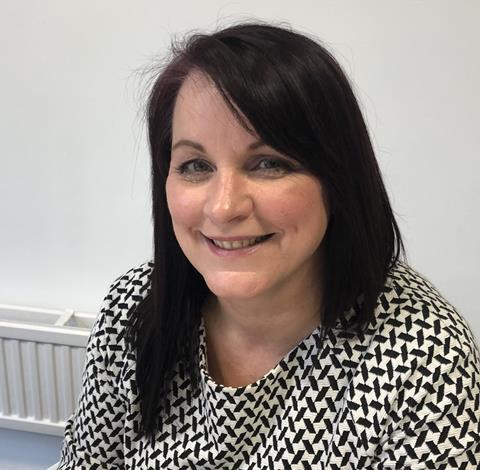Tomorrow is International WomenÔÇÖs Day. The national chair of Women in Property urges us to use this opportunity to renew our commitment to making construction more inclusive and diverse
A week ago, Women in Property hosted a panel discussion in advance of International WomenÔÇÖs Day (tomorrow, 8 March). It was a straightforward formula but the conversation was anything but.
Four of us, all industry professionals, expertly moderated by Sandi Rhys Jones, Women in Property mentoring lead and vice-president of the CIOB, shared moments of realisation, revelation and learnings, amassed during careers spanning the past 30-plus years. The reason I am sharing some of them here is that they shine a light on the issues surrounding equality, diversity and inclusion (EDI) which remain even now, despite the real progress that has been made across the industry.

If there are any doubters out there, letÔÇÖs first remind ourselves why focusing on EDI matters for business. It matters because it makes for a balanced workforce, teams tackling projects from different viewpoints, challenging the status quo, representing society.
All this, quite aside from the fundamental fact that abiding by EDI principles is the right and fair thing to do, directly referenced in six of the UNÔÇÖs 17 sustainable development goals.
The buildings we engineer and construct, the schemes we masterplan, the public spaces we design and nurture, are occupied and enjoyed by people of all ages, genders, ethnicities, abilities and disabilities, shapes and sizes. Why wouldnÔÇÖt you want some of that shared experience on your team?
It is critical that people see people like them, when they are working out which career path to follow or whether to move into a new role in a different company
So, when you take a look around you, what do you see ÔÇô does your team reflect society? This couldnÔÇÖt be more important than it is now.
We are all painfully aware that, as an industry, we are facing a skills shortage. Not only do we need to encourage more and different people in at the entry level, we need to make sure we retain those already here. It is critical that people see people like them, when they are working out which career path to follow or whether to move into a new role in a different company.
They will be seeking a diverse environment and role models to encourage and inspire. They will be looking at career progression, when the opportunity to lead a job, feel enabled to challenge opinions or head a team is all important to job satisfaction, the decider between whether they apply, stay, or go elsewhere.
Returning to our panel, which adopted the theme for IWD 2022 #BreakTheBias, we were a snapshot of gender, age and ethnicity. The chatbox was alive with questions, our audience wanting to know how we dealt with bias and, crucially, what they could do to help their colleagues understand its impact.
The answer ÔÇô or part of the answer ÔÇô is to talk. Not just with the people that work with you, educate your supply chains too. The industry will not adapt and change for the better if the conversation isnÔÇÖt open and out there.
![IMG_0323[10]](https://d3sux4fmh2nu8u.cloudfront.net/Pictures/480xAny/2/7/9/1922279_img_032310_426203.jpg)
As Chithra Marsh of Buttress Architects said, ÔÇťYou donÔÇÖt know, what you donÔÇÖt knowÔÇŁ. In other words, help them to understand.
This came up again when one (male) participant asked how men can be successful allies and, again, the answer is about communication and understanding, ÔÇťLearn to recognise the issues for womenÔÇŁ said Real Estate lawyer and consultant, Michelle Kershaw.
Not just for women, allies are invaluable to non-white and LGBTQ+ colleagues. Chithra referred to a mentor in her early career, ÔÇťHe opened the doors for meÔÇŽ doors I didnÔÇÖt even realise were thereÔÇŁ. This is all about inclusion, which comes before diversity.
My story is more about access to the industry. I did not take the Construction Project Management degree route although my background was in the trade. Instead, as an older woman, I applied to Gleeds for a role that meant starting at the bottom.
Hear what people are saying, make sure that listening becomes part of the fabric of your business, and act on it
I convinced them that I could and would learn. They broke through their own biases (in this case, age) and here I am, 10 years later, working in a senior role with colleagues whom I can honestly say have given me nothing but encouragement and respect.
Where does all this take us? For me, the two words that jump out are listen and communicate. Hear what people are saying, make sure that listening becomes part of the fabric of your business, and act on it.
As employers, everyone can endorse a climate that supports mentoring, training and professional development for all and ensure a company culture that understands the pitfalls of the everyday unconscious biases.
Nicola Jones is a senior project manager at Gleeds and national chair of Women in Property



























No comments yet